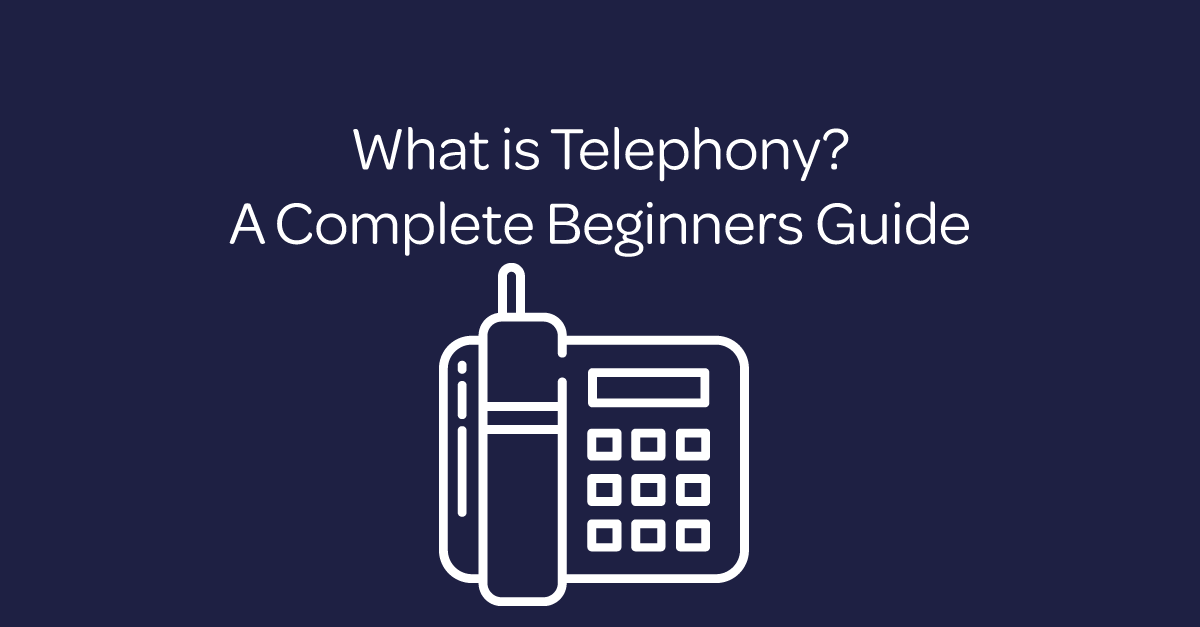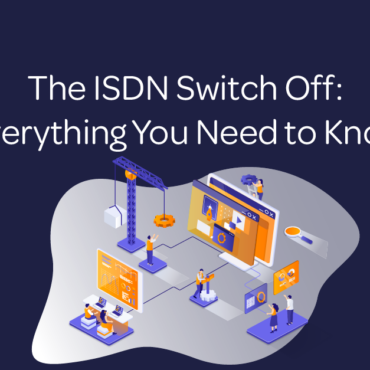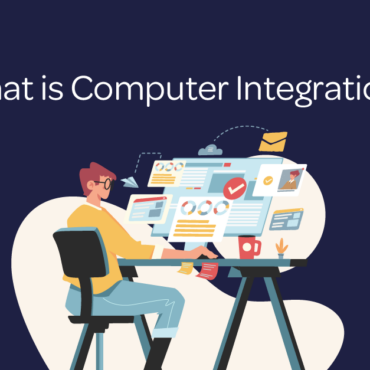Telephony is a mash-up of ‘telephone technology’. Thanks to this technology, you can have long distance conversations; call your family members, text friends, video call your work colleagues, and much more… It even allows you to send and receive faxes (yep, some people are still using fax machines).
Telephony for Businesses
No matter what type of business you have – from Apple to Just Eat, no company can operate without communicating with its customers and clients over the phone.
There are different types of telephony technology that businesses use dependent on their size, needs, and personal preferences.
Let’s take a quick look at the different types of telephony for business.
On-Premise PBX
First up, on-premise PBX (Private Branch eXchange) systems.
As the name suggests, these are business phone systems that use a private telephone business network that is physically located on the premise.
Back in the day, on-premise systems used to be the. However, like most things in life, time moves on. Sure, on-premise PBX systems are still in use, but their relevance is coming to an end.
In 2025, BT is permanently switching off its analogue phone lines. This is because they want to move their customers to a fully digital (internet-based) network – also known as VoIP (Voice over Internet Protocol).
VoIP PBX Phone System (VoIP telephony)
A VoIP system uses the internet to make and receive calls.
When you call someone using a VoIP system, it converts your voice into a digital signal, compresses it, and then transfers it over the internet.
Naturally, VoIP phone systems are perfect for modern businesses – especially now that traditional phone systems are coming to an end. It can allow businesses to adapt to hybrid and remote working as it gives you a large amount of flexibility – as long as you have an internet connection!
Mobile Telephony
Next, one thing we all use – mobile telephony (also known as ‘smartphone telephony’). Mobile telephony is the tech we use to make calls over our mobile devices.
Your smartphone transmits radio waves to a cell tower. From there, the tower signal then carries the audio to the receiver’s smartphone, and vice-versa.
Because of mobile telephony, the need for homes to have a traditional landline phone has drastically reduced. In fact, by 2026, it is estimated that over 7 and a half billion people worldwide will own a smartphone.
Internet Telephony
Lastly, we have IP telephony, which is the gold standard of telephony technology.
Internet telephony works by using the internet to make voice calls. Some examples include Skype, Zoom, Teams, and Facebook Messenger.
Because of the internet, the number of calls made using mobiles is actually dropping; people are making more and more calls using apps like WhatsApp, or Facebook Messenger.
What are the Benefits of a VoIP Phone System?
Scalability
Looking to hire more phone agents? No problem – VoIP systems can scale up (or scale down) with you. No hassle, no funny business. This is especially great if your company uses softphones, as you won’t have to invest in traditional phone equipment for every new employee you hire.
Remote working
By using a VoIP system, your employees will have the option to work from home, or be available for business calls just by carrying their mobile phone (providing they have access to an internet connection).
Future-proof operations
As we’ve mentioned above, nearly all major businesses have switched (or are currently switching) over to VoIP phone systems due to the BT switch-off. So, if you do the same, you won’t have to worry about getting left behind the rest of the pack!
Reduced office clutter
A VoIP phone system means less wires, less phones, and less clutter. Instead, everything is done through your laptops, computers, and headsets.
Hosted VoIP Phone System
A hosted VoIP system is the same as a standard VoIP system, except this time the system is not hosted on-sight (such as in the office).
In some instances, the company might be in a totally different city to you, or even another country altogether. This is all possible thanks to cloud technology (the internet).
Lots of businesses are now choosing to have hosted VoIP phone systems. There are many good reasons for this, including:
- The provider company takes care of security and maintenance. This means you don’t have to worry about doing any tiresome IT tasks yourself.
- Less physical equipment is needed on-site. This is because you’re using an internet-based system, enabling you to make calls through computers, laptops, and smartphones rather than clunky, outdated phones.
- Cost-savings. VoIP systems allow businesses to save a lot of money.
- Consistent software updates. Every year or so, you’ll be able to update your system to make it even better, such as by adding new features.
- Problems can be solved faster. Because everything is internet-based, problems can be solved by remote IT experts instantly, rather than them having to come into your office.
All in all, there’s a lot to be excited about.
Unified Communications
As the name suggests, this is an all-in-one approach to telephone communications that many businesses – big and small – are now taking. The reason for choosing unified communications is that it takes performance levels up a notch!
By using unified communications software, a business will usually receive the following features:
- Phone calls
- Video calls
- Text messaging
- Collaboration tools (such as file sharing, screen sharing, and more)
Employees now need to communicate with each other constantly, especially with the increase in businesses supporting remote working.
For any company that is reliant on communication with customers, as well as each other, a unified communications approach ticks all the boxes.
Telephony Requirements
Depending on the type of business phone system you want, there will be different requirements that you need to meet. Don’t worry, nothing is too scary or complicated. In fact, it’s the exact opposite.
Let’s go through a brief rundown.
If you decided to go for the traditional phone system that uses PTSN, you would need:
- Handsets (physical phones)
- Wall jacks
- Space for wires and cables
Essentially, the older the phone system you use, the more equipment and hardware you will have to deal with.
In contrast to this, choosing a VoIP, internet-based phone system would mean you’ll need:
- Headsets
- Computers, laptops, or mobile devices
- Broadband internet with strong connection capability
- 3G, 4G, or 5G connection for mobile communication
Of course, if you want to cut down on your hardware and gain access to a wider range of possibilities – such as remote working – then choosing a VoIP phone system will be best for you.
No matter what industry you’re in – be it healthcare, sports, marketing, or music – communication with clients and customers is the core of any business.
Our Knowledge Hub For SME Insights
Wayv Certified Carbon Neutral for Second Year
Wayv are delighted to have been certified carbon neutral by Carbon Neutral Britain for the second year running.
The ISDN Switch Off: Everything You Need to Know
ISDN stands for Integrated Services Digital Network. It is a set of communication standards for transmitting digital data…
What are the Advantages of Hot Desking?
In a traditional office model, you will be in your assigned seat, on-site, from 9-5 every weekday. With…
What Is Computer Integration?
Computer integration integrates your business phone systems by allowing employees to complete all phone-related tasks through your computer,…
Why Businesses Need Call Recording
Call recording is now a fundamental feature of business phone systems; it ensures business protection and improved performance. …
Neurodiversity in the Workplace
Diversity consultant Susan Woods, Henderson Woods, explains, “Diversity of thought is fundamental to understanding the power of diversity…
Better Bandwidth, Better Business Outcomes
In the ever-changing digital world, businesses must be able to keep up to be able to thrive in…
7 Tips to Beat Workplace Stress and Boost Wellbeing
We all know that work can sometimes be stressful. The deadlines, the pressure, and the endless to-do lists…














